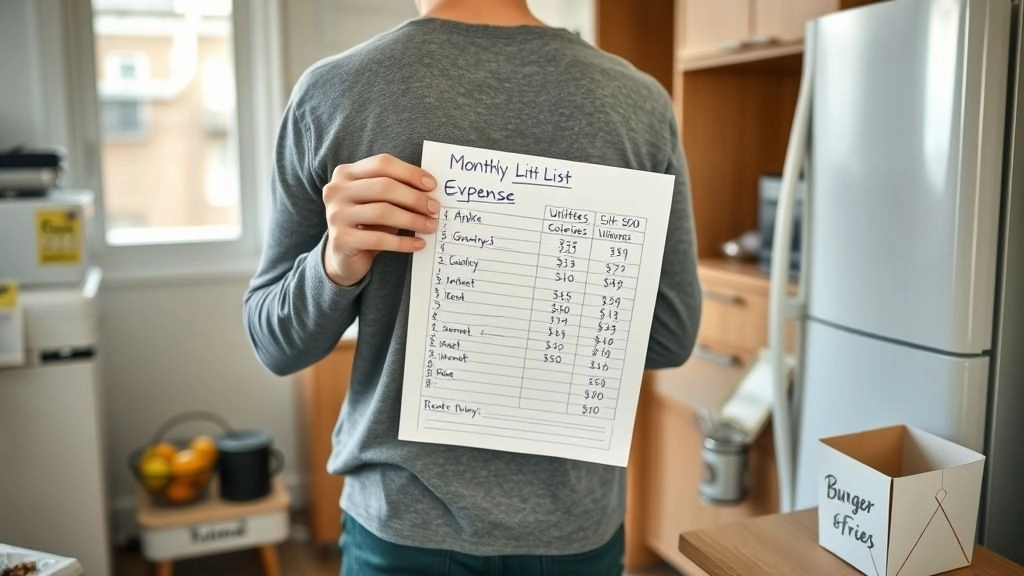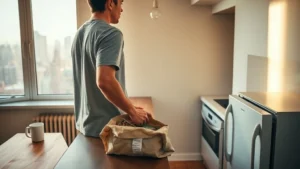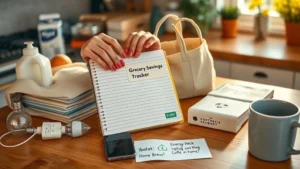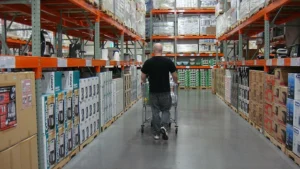So, you’ve finally made the big move—living on your own. It’s exciting, right? But before you get too comfy, there’s something we need to chat about: the costs. Not just rent or mortgage, but the sneaky little expenses that pile up faster than you expect. Believe me, I’ve been there—moving out with stars in my eyes but getting blindsided by each new bill.
Let’s unpack what you really need to know about what are some of the costs of living on your own, and I’ll share some tips on how to keep your budget from bursting at the seams.
Sneaky Bills Add Up
Rent Isn’t The Whole Story
You might think, “Okay, I have my rent covered, done!” But nope, rent is just the tip of the iceberg. Beyond that, you’ve got utilities—electricity, water, gas—a bunch of subscriptions you forgot you still pay for, groceries (hello, food!), and don’t forget internet and trash hauling. These can easily add hundreds to your monthly expenses.
For example, one person shared their first-month expenses: rent plus security deposit hit about $2,600, then utilities were around $50 monthly, food about $320, plus other small costs like laundry and transportation. That first month really opened their eyes to what living solo actually costs.
| Expense | Typical Monthly Amount | Money-Saving Tip |
|---|---|---|
| Rent | $800–$1,200 | see what are some ways that someone can save money on their rent? for ideas |
| Utilities | $100–$250 | Turn off lights, unplug devices when not in use |
| Groceries | $250–$400 | Meal prep, bulk buy staples |
| Transportation | $60–$150 | Use public transit or carpool when possible |
Living alone means all utilities are on you. No roommate to split the electric bill with, no one to say “Hey, you forgot to turn off the water.” It’s all on you—and your wallet notices.
You can see how rent and utilities alone could gobble up a big chunk of your income. And that’s before you fill the fridge or Netflix binge your Sunday away.
The Hidden Fees You Didn’t Expect
Ever signed a lease and then sat down with the paperwork just to find out about fees like security deposits, key money, broker fees, or even fire insurance premiums? They can stack up quickly—sometimes equal to several months of rent upfront.
Plus, moving costs. If you’re hiring movers, expect to pay anywhere from a few hundred to over a thousand depending on distance and stuff. And then there’s furniture and appliances. A basic setup might cost a few hundred, if you’re thrifty and lucky. Otherwise, it can easily go over $1,000.
To get a tailored estimate, you might want to try this How much does it cost to live on your own calculator. It helps you see the full picture based on your location and lifestyle.
Food & Groceries
Why Eating Solo Can Be Pricier
Here’s a surprise: cooking for one can sometimes cost more than cooking for two or more. Why? You can’t always buy a six-pack of chicken breasts when you only want one, and half that salad might wilt before you get to it.
Groceries can run anywhere from $250 to $400 monthly depending on where you live and what you eat. If you’re in a pricey city, that number could creep higher. Add food delivery or the occasional (or daily) takeout, and your food budget swells quickly.
One trick that worked wonders for me (and maybe you’ll like it too) was meal prepping with a friend. We swapped portions so we didn’t eat the same thing every day and saved on bulk buys. It’s a little social, a little frugal, and a lot of sanity saver.
Subscriptions & Entertainment
When you live alone, it’s tempting to keep a streaming service around for company. Netflix, Hulu, Spotify, you name it. Add those up and you might be spending $20–$40 a month on stuff you sometimes forget you even watch.
Cutting back or sharing passwords can easily slice off a few bucks. It feels like a small win, but these small wins add up fast.
Big-Ticket Surprises
The ‘Oh Crap’ Repair Budget
Have you ever had your fridge suddenly stop cooling? Or the heater break on the coldest day? When you live alone, these surprises land squarely on your budget.
Unlike renting where your landlord might fix things (sometimes), living on your own means you’re the go-to fix-it person or the one who pays for repairs. Setting aside an emergency fund just for these moments can save you a lot of stress.
And here’s where that calculator comes in handy again—getting a realistic number on how much you need to stash every month to avoid a panic attack.
Insurance Essentials
Renter’s insurance isn’t just a nice-to-have—it’s a must. It protects your stuff from theft, fire, or unexpected damage. For the cost of a couple of lattes a month, you get peace of mind that’s worth it.
Want a full list of monthly costs to keep track? That Monthly expenses list sample is a great place to start. You’ll see how all the little things — from your cell phone bill to pet care — add up.
Clever Ways To Save
Can You Save On Rent?
Absolutely. One of the biggest wins in your budget is lowering your rent. This might mean negotiating with your landlord, choosing a place with a better deal, or getting a roommate for a while.
If you want to get smart about it, check out what are some ways that someone can save money on their rent? It’s packed with practical tips that helped me avoid defaulting on my bills during a rough patch.
Beyond Saving: Being Generous
Living on your own, managing your money, and owning your space can oddly give you more freedom to be generous. When your budgeting is tight but manageable, you have room to help others or support causes you believe in.
There’s something freeing about knowing exactly where your money goes and having control over your finances. If you want to explain how renting or buying a home is connected with someone’s ability to be generous?, it’s about stability. When your housing doesn’t own your budget, you own your choices.
Tracking Your Real Numbers
Want To Make Your Budget Work?
The key is tracking your expenses honestly. Try using this How much does it cost to live on your own calculator along with a Monthly expenses list sample to get a clear picture.
Once I started recording every expense, even the small ones like that $3 coffee or $7 lunch, it was eye-opening. Suddenly, I saw where my money was drifting away and could fix course before it was too late.
Living Alone Doesn’t Have to Mean Stress
Yes, living alone means you face all the bills solo. But knowing what to expect helps you prepare, plan, and actually enjoy your space without constantly sweating your budget.
Here’s the bottom line: budgeting isn’t about restriction; it’s about freedom. Knowing your costs helps you decide on what really matters—whether that’s saving up for a trip, buying that vintage jacket, or giving back.
Let’s Wrap This Up
Alright, friend, living on your own is a wild ride with plenty of surprises, not all good. But it’s also packed with chances to grow your independence and your savings. We’ve looked at what are some of the costs of living on your own—from rent to groceries, those pesky hidden fees, and emergency repairs.
Here’s your homework: start tracking your expenses. Use that How much does it cost to live on your own calculator, put pen to paper (or fingers to phone), and write down everything. Next, pick one money-saving trick from what are some ways that someone can save money on their rent? and try it this month.
Trust me, handling your money like a pro feels amazing. And living your best life on your own? Totally doable when the numbers match up. So what’s your first step? I’m rooting for you.








